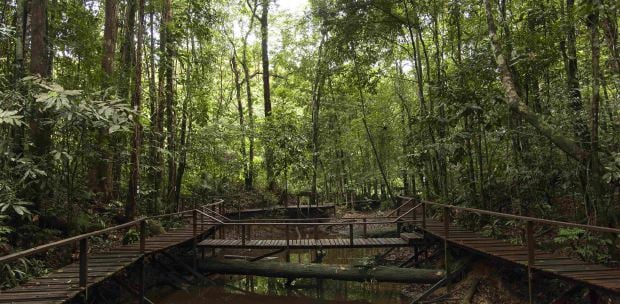KUALA LUMPUR: The federal government should diversify its methods aside from the Ecological Fiscal Transfer for Biodiversity Conservation (EFT) payments to reduce the exploitation of resources by the states.
Environmentalist Anthony Tan said the EFT payment was only one way of encouraging states to preserve their environmentally sensitive areas (ESA).
"The federal government needs to come up with a better formula to redistribute the federal income from taxes so that states need not depend on exploiting their natural resources to fill their treasuries.
"Too much wealth is stuck in the hands of the federal government, which leads to over-development of KL and Klang Valley at the expense of rural areas of Peninsular Malaysia such as the Northern regions, the East Coast, and Borneo.
"Aside from EFT payments, other ways must be looked into, to ensure that the natural resources of each state are not being exploited to fill state funds," he said.
He also stressed that current EFT payments should be tied to the strict implementation of Biodiversity Conservation which is monitored, reported and verified (MRV) by a third party to ensure the status of ESAs are left unchanged.
Yesterday, Natural Resources, Environment and Climate Change Minister Nik Nazmi Nik Ahmad said the ministry intended to cease EFT payments to Kelantan if the state continues with its plan to make changes to its development plan involving ESAs.
He said the plan was not in line with the underlying principles in the implementation of EFT, which is an additional financial incentive from Putrajaya to state governments introduced in 2019 to protect and conserve protected areas, including ESAs for biological diversity.
ESAs refer to areas that are of critical importance to any activity or development and must be preserved to maintain their life support value and reduce the risk of natural disasters caused by land use conversion.
Meanwhile, Ecological Association of Malaysia president Professor Dr Ahmad Ismail said the amount of EFT funds should not just be based on the area but its functions.
"For example, the Ulu Muda forest complex contributes to 40 per cent of rice production for the country.
"The Ulu Muda forest complex is the main source of water to Kedah, Penang and Perlis."
He added that currently, the EFT was not just to support government policies on the percentage of reserve forests that needed to be kept, but was also to support issues of climate change and biodiversity loss.
"This is important to our country as certain forests have a special contribution to the state or the country in general."
Nik Nazmi was earlier reported to have said that the Kelantan government's move to make changes to its development plan involving ESAs would have implications on the federal government's policy to achieve 50 per cent forested area in Peninsular Malaysia, in line with the National Physical Plan.
He said the state government, during its state executive council meeting on Oct 21, had decided that permanent forest reserves, except water catchment areas, would no longer be classified as ESAs.
The declassification is still in the draft stage, and the state's town and country planning department (PLANMalaysia) is in the midst of collecting feedback through its publicity and public engagement programme which is being held until Nov 11.
Prime Minister Anwar Ibrahim, when tabling Budget 2024, had announced that the allocation for EFT would be increased to RM200 million from RM150 million this year.





